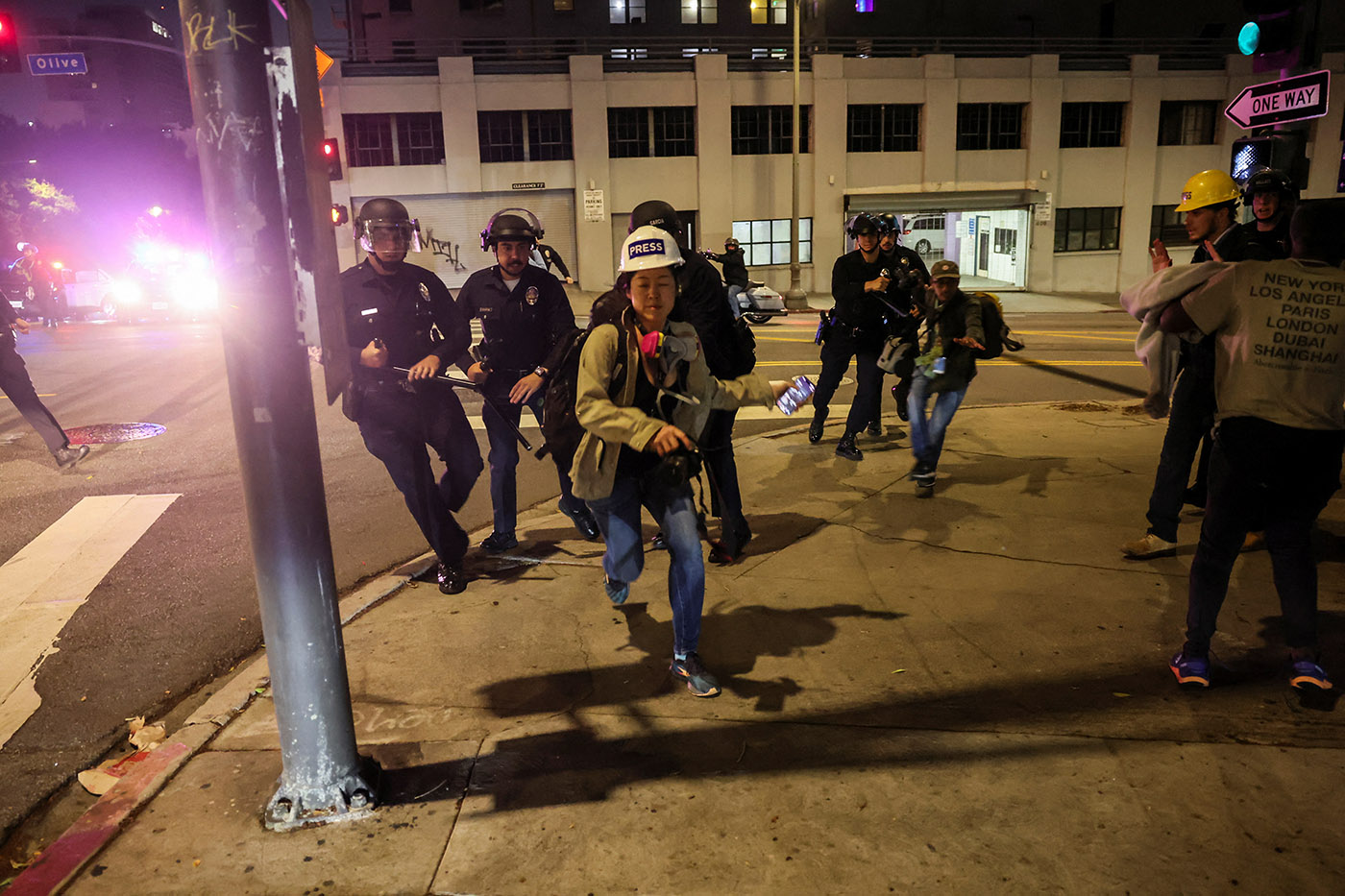MARION, Kan. (AP) — A small newspaper and a police department in Kansas are at the center of a dispute over freedom of speech as the newspaper struggled Monday to publish its next edition, days after police raided its office and the home of its owner and publisher.
Officials with the Marion Police Department confiscated computers and cellphones from the publisher and staff of the Marion County Record in Friday’s raid. On Monday, Kansas state authorities confirmed they are also involved in a criminal probe of the newspaper over allegations that it illegally obtained and used personal information about a local business owner.
Friday’s raids have been widely condemned by press freedom watchdogs as a blatant violation of the U.S. Constitution’s protection for a free press. Kansas Gov. Laura Kelly called the raids “concerning.” An attorney for the newspaper deemed the searches and seizures illegal and said the police department’s action “offends the constitutional protections the founding fathers gave the free press.” The Society of Professional Journalists pledged $20,000 toward the newspaper’s legal defense.
But some Marion residents hold a different view, accusing the newspaper of aggressive news coverage that has driven out businesses and painted a negative picture of the town of about 1,900 people.
Newspaper publisher and co-owner Eric Meyer said he believes the newspaper’s dogged coverage of local politics and Police Chief Gideon Cody’s record are the main reason for the raids. The Record was in the midst of digging into the newly hired chief’s past as a Kansas City, Missouri, police captain when the raids were carried out, Meyer said, although the newspaper hasn’t yet published a story.
The newspaper’s attorney, Bernie Rhodes of Kansas City, sent a letter to the Cody demanding that police not review any information on the computers or cellphones seized, saying they were taken illegally and contain identities of confidential sources. He also accuses Cody of misinterpreting laws on privacy and wrongly applying them to news reporters.
“I can assure you that the Record will take every step to obtain relief for the damages your heavy-handed actions have already caused my client,” Rhodes said.
The police searches appear to have been prompted by a complaint from a local restaurant owner, Kari Newell, who accused the newspaper of invading her privacy after it obtained copies of her driving record, including a 2008 drunken driving conviction. Newell says the newspaper targeted her after she ordered Meyer and a reporter out of her restaurant earlier this month during a political event.
Meyer says a source gave the newspaper the information unsolicited and that reporters verified it through public online records. The paper eventually decided not to run a story, but it did report on Newell’s complaints about the newspaper’s investigation at a city council meeting, where she publicly confirmed she’d had a DUI conviction and that she drove after her license was suspended.
The search warrant names Newell as a victim and lists the underlying reasons for the searches as suspicion of identity theft and “unlawful acts concerning computers.”
Both Meyer and Newell have said they have fielded messages — and some threats — from as far away as London in the aftermath of the raids. Meyer worked with his staff Monday to reconstruct stories, ads and other materials for its next edition Wednesday.
Cody defended the raid on the newsroom, saying it was conducted legally, while press freedom and civil rights organizations have said that police overstepped their authority.
Jared Smith, a lifelong Marion resident, said Monday that he supports the police raid. Smith accused the newspaper of ruining his wife’s day spa business opened only a year ago by digging into her past and discovering she had appeared nude in a magazine years before. That fact was repeated in the Record more than 20 times over a six-month period, Smith said.
“The newspaper is supposed to be something that, yes, reports the news. But it’s also a community newspaper,” he said. “It’s not, ‘How can I slam this community and drive people away?’ ”
Authorities appeared unprepared for the public backlash to the raids, as involved agencies either refused to comment Monday or took pains to acknowledge the constitutional right to a free press while defending the ability of police to investigate journalists.
Cody referred questions Monday to the Kansas Bureau of Investigation, saying it was leading the investigation. The state agency, in turn, refused to say it had taken over the investigation, referring instead to a statement saying it had “joined” the investigation and seemed to try to distance itself from the raids.
The state police agency said it had assigned an agent to the case at the request of Cody on Aug. 8 — three days ahead of the raids — but did not apply for the search warrants and wasn’t there when they were executed. While the agency declared freedom of the press as “a vanguard of American democracy,” it also appeared to defend the actions of local police, saying: “No one is above the law, whether a public official or a representative of the media.”
Both Meyer and Newell are contemplating lawsuits — Newell against the newspaper and Meyer against the public officials who carried out the search.
Meyer also blames the raid at his home for stressing his 98-year-old mother enough to cause her death on Saturday. Joan Meyer was the newspaper’s co-owner.
Tags




